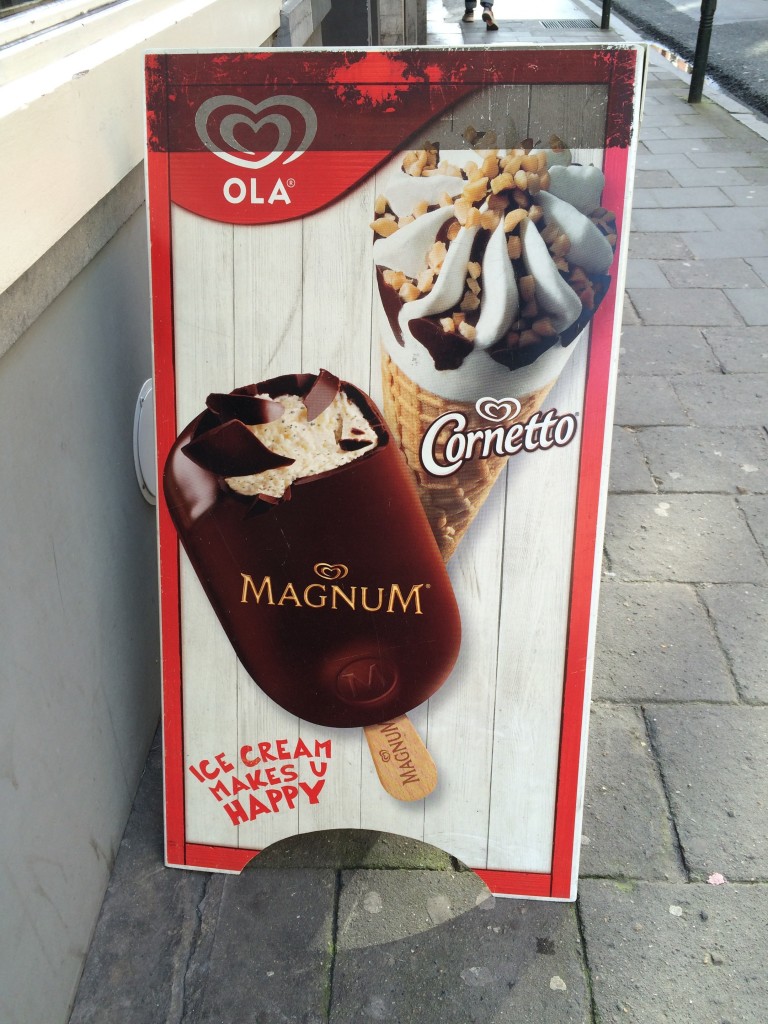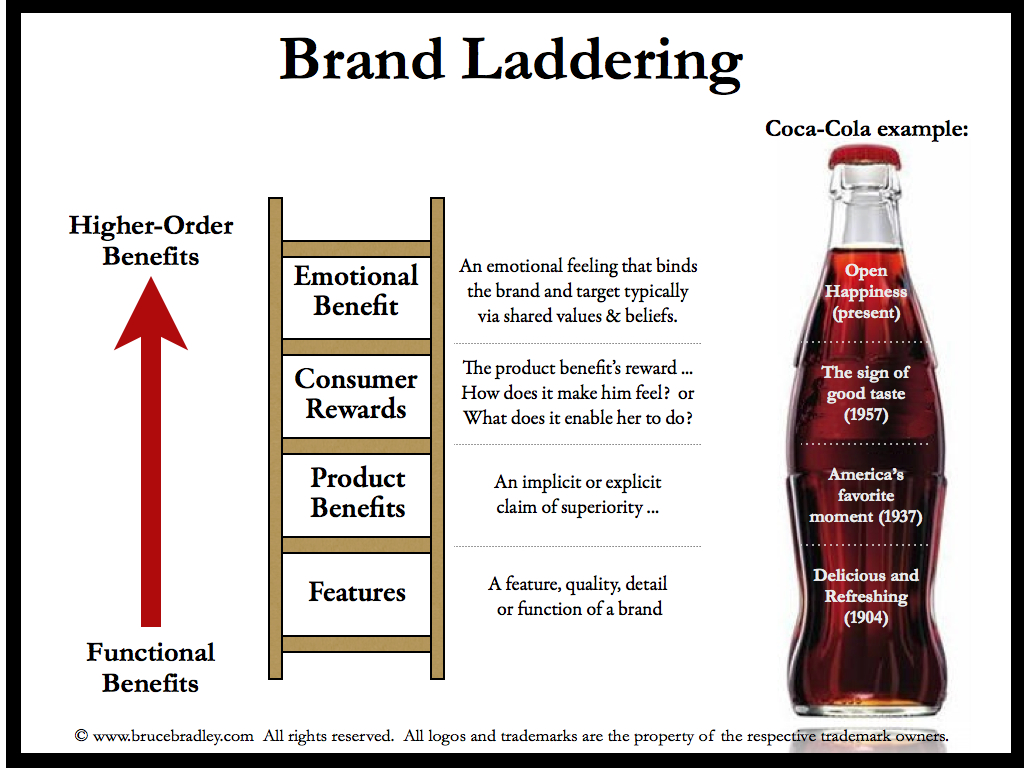Food products can bring comfort and even happiness, I wrote last week. But let’s be more precise: some food products can bring some moments of happiness. And marketers are happy to try and make us believe that its exactly their products that bring us closer to what we are longing for: happiness.
I am do not know a lot about the history of marketing, but I came across an interesting blog post by Bruce Bradley. He claiming that the way that marketers have sold their products changed over the duration of the 20th century. Whilst initially, Coca Cola advertised their products with its features (‘delicious, refreshing’), they have gradually moved up in their claims. In the 1930s, the perceived product benefits (superior qualities, ‘America’s favourite moment’) were used to sell coke. In the 1950s, Coca Cola rewarded consumers on an individual and personal level for choosing their products (‘the sign of good taste’). And more recently, it’s about emotional benefits: ‘open happiness’.
Happiness: the highest value to sell?
Nowadays, brands do not communicate the product itself as such, but promote it by linking it to higher values. Happiness probably is the highest value that we can aspire to. If not happiness, what is it in life that we are searching for? Indeed, it’s impressive how consistently marketers across different brands and food products are ‘selling happiness’. Some examples beyond Coca Cola:
- The most famous of all: McDonalds’ ‘Happy Meal’ .
- Unilever’s ice cream brand (Ola in Belgium, going by other names in other markets) claims that ‘ice cream makes u happy’
- Coffee producer Illy invites you to ‘live happILLY’
- In the US, Lay’s did a campaign around ‘happiness exhibit’, asking people to send it happy photo’s.
- Also well-known: Coca cola did a campaign with the slogans ‘share happiness’ and ‘open happiness’
Basically, I’d eat myself into obesity from all the fat and sugar in all these products before I become happy! And if I finish binge-eating a bag of Lays or a bucket of Ola ice cream, I feel guilty and sad rather than happy.Of course there is no sense in any of the claims. By associations themselves with happiness as a virtue, happiness marketers try to communicate something bigger than their products. The claims aren’t only insensible, they are also potentially dangerous for public health. Maybe the commercial should come with a sort of disclaimer, similar to alcohol or tobacco: happiness effects not proven.

It’s the act of cooking that increases happiness
Ultimately I believe that it is not so much the act of consuming, but the act of producing that gives food the magic that is associated withs happiness effects. Baking is one – although by no means the only – example. Human beings are creators. We want to make something new and claim it as ours. A home-made cake almost always tastes better than one from the supermarket.
Dan Ariely, already mentioned earlier on the blog, calls this ‘the IKEA effect’: we value things more when they are ours. A great example is the cake mixes that were being sold from the 1950s. The first cakes mixes required nothing but the addition of water. They sold very badly. The producers than changed one thing: they took out eggs and milks from the mix. Sales went up from this point: housewives felt that they had contributed to the product and could claim the cake as ‘theirs’.
Happiness is made with our own hands
In the 21st century, so many people working behind a computer produce nothing concrete. The output they generate is in data, text and numbers. There is nothing tangible. Doing something physical, like baking a cake from scratch, weeding the garden, or creating your own painting allows you to show something real and tangible as your product. Spending time on baking your bread, cup cakes or biscuits is a ‘pill-less prozac’, claims a UK campaign group citing research associating baking with lower mental health issues. Happiness doesn’t come out of a bag of crisps or a bottle with a famous logo on it. It comes from what we do with our hands.

